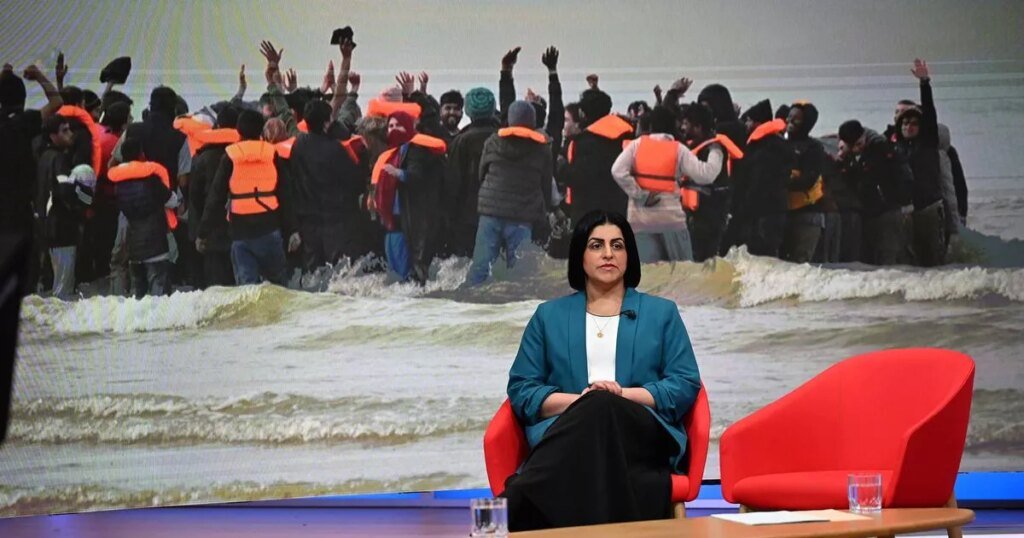Shabana Mahmood will set out plans on Monday billed as the biggest shake-up to the asylum system since the Second World War, with measures inspired by Denmark’s hardline model
Britain’s asylum system is “out of control” and the result is “tearing our country apart”, the Home Secretary has said as she prepares to unveil sweeping reforms.
Shabana Mahmood will set out plans on Monday billed as the biggest shake-up to the asylum system since the Second World War, with measures modelled on Denmark’s hardline system.
Proposed changes include stripping back a legal right to financial support for asylum seekers, including the housing and weekly allowance
The amount of time refugees must wait to seek permanent settlement will be quadrupled to 20 years.
Refugee status will be made temporary and reviewed every two to three years, meaning people who have built their lives in Britain could be deported to their home countries if they are deemed safe.
READ MORE: Asylum seeker support to be revoked in sweeping immigration crackdownREAD MORE: Grim images of people struggling at sea shown to migrants in new shock tactics
Three new legal routes will be created to counter the draconian changes, including capped work and study routes, and a scheme for local communities to sponsor refugees modelled on the Homes for Ukraine scheme.
The details triggered fury from charities, while Ms Mahmood was accused of “reheating failed policies” proposed by the Tories.
But the Home Secretary rejected the criticism, saying: “I am the child of migrants myself. My parents came to this country lawfully in the late 60s and in the 70s. Immigration is absolutely woven into my experience as a Brit and also that of thousands of my constituents.”
Ms Mahmood went on: “This is a moral mission for me, because I can see illegal migration is tearing our country apart. It is dividing communities.
“People can see huge pressure in their communities, and they can also see a system that is broken and where people are able to flout the rules, abuse the system and get away with it.”
Sunder Katwala, Director of immigration thinktank British Future, said: “These proposals may grab headlines, but they won’t stop the boats. They are close in spirit and content to Priti Patel’s 2022 plan — and if tough talk about ‘pull factors’ worked, it would have worked then. It didn’t.
“Rather than reheating a failed strategy, the government needs a serious plan: safe, controlled routes alongside returns of irregular arrivals to break the smugglers’ business model.
“Making those already here wait 20 years before they can settle isn’t going to change people’s minds about getting in a smuggler’s dinghy.”
Sile Reynolds, Head of Asylum Advocacy at Freedom from Torture, said: “Every day we see the trauma of people who have survived torture in countries like Syria, Eritrea and Sudan for standing up for the same freedoms we cherish in Britain.
“Instead of offering safety, political parties are locked in a race to the bottom – trying to outdo one another in cruelty towards refugees.
“These proposals will punish people who’ve already lost everything, cutting them off from safety and hope. But either we all have human rights, or none of us do. Stripping away protections that prevent people being sent back to their torturers is not who we are as a country.”
Some 39,075 people have arrived in the UK after making the Channel crossing so far this year, according to the latest Home Office figures.
The arrivals have already passed the number for the whole of 2024 (36,816) and 2023 (29,437), but the number is still below the total at this point in 2022 (39,929).


